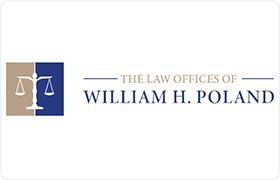Southside Misdemeanor Lawyer, Tennessee
Sponsored Law Firm
-
 x
x

Click For More Info:
-
Law Offices of William H. Poland
408 Franklin St Clarksville, TN 37040» view mapCriminal Defense Law Sound, Professional, & Timely Service
As your attorney, you can be assured that we will use our best reasonable efforts to conclude your matter favorably and to keep you advised of the status of your case.
800-810-3461
Not enough matches for Southside Misdemeanor lawyer.
Below are all Southside Criminal lawyers.
Teresa Smith
Family Law, Criminal, Elder Law, Animal Bite
Status: In Good Standing Licensed: 47 Years
Teresa K. Murray Smith
Family Law, Criminal, Elder Law, Animal Bite
Status: In Good Standing Licensed: 47 Years
Teresa K. Murray Smith
Family Law, Elder Law, Animal Bite, Criminal
Status: In Good Standing Licensed: 47 Years
Robert Dillon Sykes
Civil Rights, Commercial Real Estate, Immigration, Criminal
Status: In Good Standing
Damian Maloney
Criminal, Business & Trade, Natural Resources, Public Law
Status: In Good Standing Licensed: 20 Years
 Will Poland Clarksville, TN
Will Poland Clarksville, TN Practice AreasExpertise
Practice AreasExpertise
